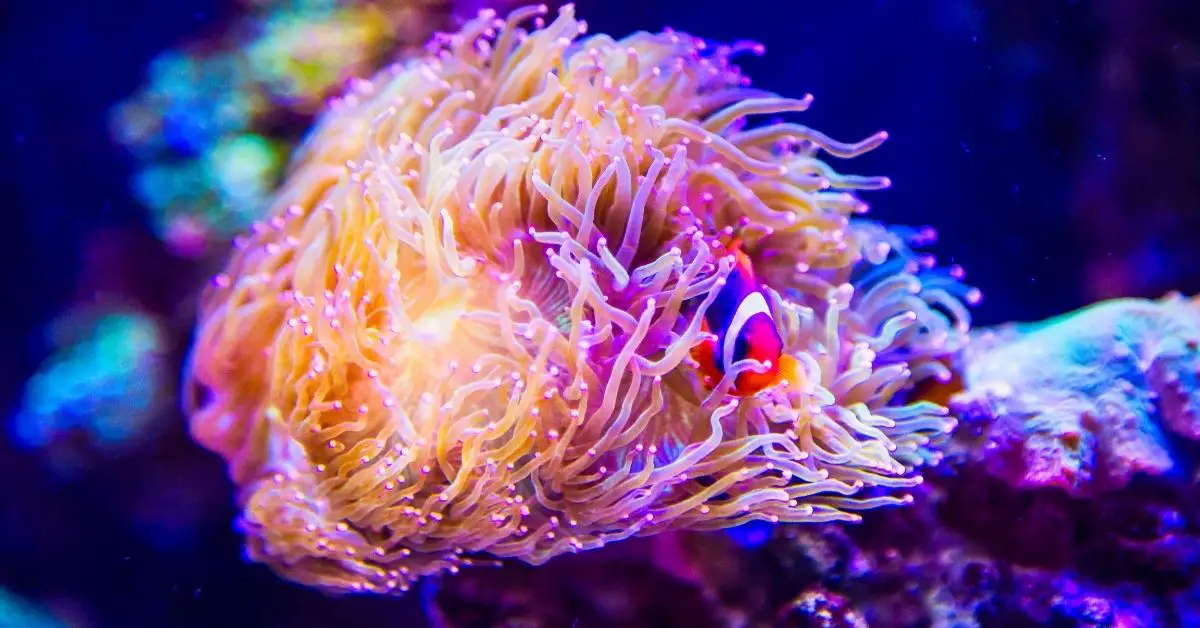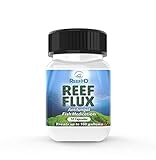The clownfish continues to exist as the most known fish for obvious reasons and, quite frankly, a lot of people’s favorite. All sorts of FAQs exist regarding the fish and the best corals for clownfish to host in, so let’s talk about all these questions and their respective answers.
What is a coral?
To start off on what would be the suitable corals for clownfish, it is essential to know what a coral essentially is first. While they may be considered plants by many, corals are actually marine invertebrates. Invertebrates are animals without a bony skeleton.
Corals are not considered plants because plants make their own food corals do not. Instead, they have small arms that like tentacles that they use to capture food from the water to feed themselves. Fish have a meaningful relationship with a coral reef.
The coral reef is just the reef that is formed by multiple corals held together by calcium carbonate. These are important to fish, and fish is essential to them. The relationship between the two is one that benefits both. How? Coral reefs help provide fish with shelter and food, whereas fish helps in the growth of Coral by providing the appropriate nutrients as well.
ReefHD Reef Flux Anti-Fungal Treatment (100 gal)
Red Sea Reef Energy Plus 500ml (AB+) All in One Coral Food for Saltwater Aquarium Marine Reef Tanks | Food for Soft, LPS, SPS, and Non-Photosynthetic Corals
$29.99 ($3.55 / Fl Oz) (as of June 27, 2025 06:30 GMT +03:00 - More infoProduct prices and availability are accurate as of the date/time indicated and are subject to change. Any price and availability information displayed on [relevant Amazon Site(s), as applicable] at the time of purchase will apply to the purchase of this product.)NICREW HyperReef 150 Gen 2 Reef LED Light, 150W Reef Aquarium Lighting for SPS LPS Corals and Saltwater Fish Tanks, Enhanced Violet and Blue Spectrum, Wide Angle Lens, 5 Channels Fully Programmable
$319.99 (as of June 27, 2025 06:50 GMT +03:00 - More infoProduct prices and availability are accurate as of the date/time indicated and are subject to change. Any price and availability information displayed on [relevant Amazon Site(s), as applicable] at the time of purchase will apply to the purchase of this product.)Do clownfish need Coral?
Coral reefs provide an entire underwater ecosystem that helps all sorts of fish, but if one is thinking this question while considering an underwater aquarium, the answer might differ. While the relationship shared by corals and clownfish holds much significance, recreating it in an aquarium setting may not be the best thing to consider.
Clownfish don’t necessarily need Coral to survive despite all of the help that it provides. There is a difference between tank-raised and wildly found fish, and that exists for a good reason. Adding corals with a tank-raised fish can increase complications because these are living things of their own and can be challenging to take care of.
What Coral do clownfish live in?
Clownfish mostly live in anemones, and while corals are also at times casually referred to as anemones, they might not exactly be the same thing despite being very similar. So if you want to know what corals a clownfish prefers, it is better to understand anemones first.
Will clownfish host in elegance coral, and hammer coral?
To answer the question simply, yes. This is a frequently asked question and one that exists for a good reason. While the difference between corals and anemones has been made clear, it is also important to note that there are coral alternatives to anemones as well that clownfish can host in.
What are the best soft corals for clownfish?
These alternatives are only a handful in number but are still essential to consider. These include the Mushroom Leather Coral, the Hairy Mushroom Coral, and of course, the Elegance coral and the hammer coral.
Are corals and anemones the same thing?
Well, technically, no, not really. Corals and anemones might be alternatively used as names for one another. Still, they do have a significant difference that creates all the distinction, especially for the fish that will be looking for a place for shelter.
The significant difference is in the skeleton that is created. This is done by corals and not anemones. When creating a reef, corals use calcium carbonate to create a rigid skeleton that includes branching, mounds, etc. On the other hand, anemones are filled with water and aren’t hard like the skeleton created by corals. They are relatively soft and even squishy.
What anemones do clownfish prefer?
If you get your tank-trained clownfish an anemone, there’s a high chance it might not even go near it. Corals and anemones have provided benefits to fish since the beginning of time, but what is that benefit? That benefit is protection and shelter from all and any predators. But do tank-trained fish even find this need anymore?
The answer to that is no. Wild caught fish may be more willing to use anemones for their own benefit, but tank trained fish may not even want to.
Over the generations of fish that would have spent their entire lives in a safe space inside a tank, their natural instinct of wanting to hide and beware of predators may not be at their peak. And for that very reason, they don’t need corals either.
That being said, there are still obviously anemones that prove to have a great relationship with clownfish if provided the proper care and comfort that they require as animals. Let us discuss these in detail.
Actiniidae Family
The best and largest known family of anemones, which also proves to be the best for clownfish, is the Actiniidae family. The first recommendation from any professional that you’ll receive regarding great anemone for your clownfish will be the Bubble Tip Anemone, which is, of course, part of the Actiniidae family.
Other anemones are part of the family that is very commonly found as well, like the Sebae Anemone and the Delicate Sea Anemone.
Stichodactylidae Family
This family consists of anemones that are primarily found in the tropics, like the Giant carpet Anemone and the Saddle Anemone.
Thalassianthidae Family
While four different genera are part of this family, there are only one species in the entire family that helps in hosting clownfish, and that is the Adhesive Sea Anemone.
What is the lifespan of a clownfish?
When discussing corals and anemones, it is of great value to understand their influence on the lifespan of clownfish and what happens without them. In general, tank trained clownfish live for about 3 to 5 years, but they can also live up to 10 years in the wild.
This significant difference that exists between the two lifespans is usually created by the addition of the wrong anemone. This is why it is essential to understand what the correct corals and anemones are for your fish.
Conclusion
All in all, all kinds of corals and anemones exist that are living things in themselves and so to understand their own needs before introducing them to your fish is necessary, to say the least.
References:
- Species Profile: Clownfish by Matthew A. DiMaggio1, Elizabeth M. Groover, Jonathan van Senten and Michael Schwarz https://srac.tamu.edu/fact-sheets/serve/293
















3 thoughts on “Do Clownfish Need Coral In a Reef Tank?”
Comments are closed.